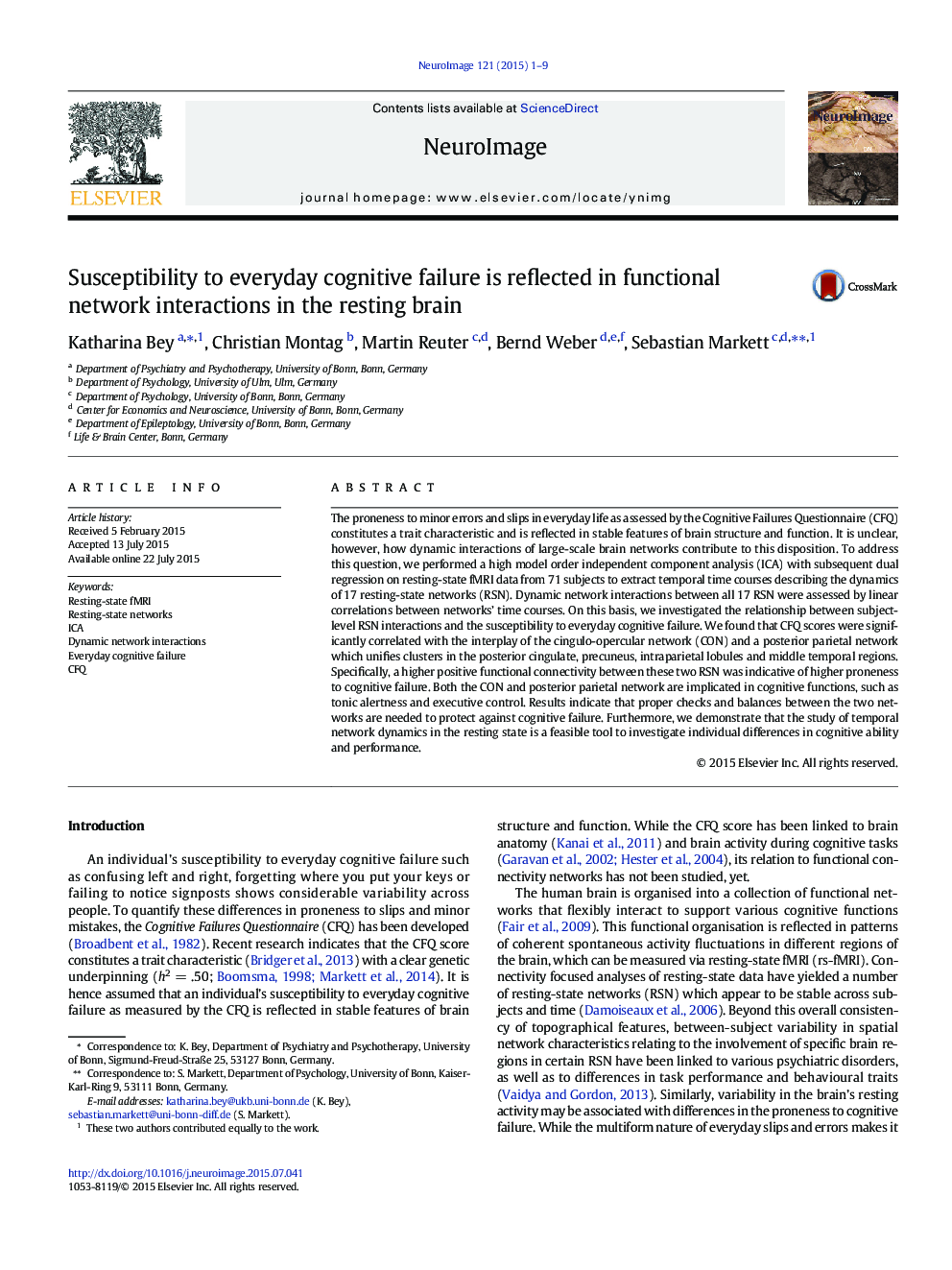| Article ID | Journal | Published Year | Pages | File Type |
|---|---|---|---|---|
| 6024758 | NeuroImage | 2015 | 9 Pages |
â¢Functional interactions between ICA-based resting-state networks are investigated.â¢We examine these interactions' relevance for proneness to everyday cognitive failure.â¢Key resting-state networks and patterns of network interaction are replicated.â¢An anterior x posterior cognition network interaction relates to cognitive failure.â¢A new promising individual differences approach to resting-state fMRI is presented.
The proneness to minor errors and slips in everyday life as assessed by the Cognitive Failures Questionnaire (CFQ) constitutes a trait characteristic and is reflected in stable features of brain structure and function. It is unclear, however, how dynamic interactions of large-scale brain networks contribute to this disposition. To address this question, we performed a high model order independent component analysis (ICA) with subsequent dual regression on resting-state fMRI data from 71 subjects to extract temporal time courses describing the dynamics of 17 resting-state networks (RSN). Dynamic network interactions between all 17 RSN were assessed by linear correlations between networks' time courses. On this basis, we investigated the relationship between subject-level RSN interactions and the susceptibility to everyday cognitive failure. We found that CFQ scores were significantly correlated with the interplay of the cingulo-opercular network (CON) and a posterior parietal network which unifies clusters in the posterior cingulate, precuneus, intraparietal lobules and middle temporal regions. Specifically, a higher positive functional connectivity between these two RSN was indicative of higher proneness to cognitive failure. Both the CON and posterior parietal network are implicated in cognitive functions, such as tonic alertness and executive control. Results indicate that proper checks and balances between the two networks are needed to protect against cognitive failure. Furthermore, we demonstrate that the study of temporal network dynamics in the resting state is a feasible tool to investigate individual differences in cognitive ability and performance.
